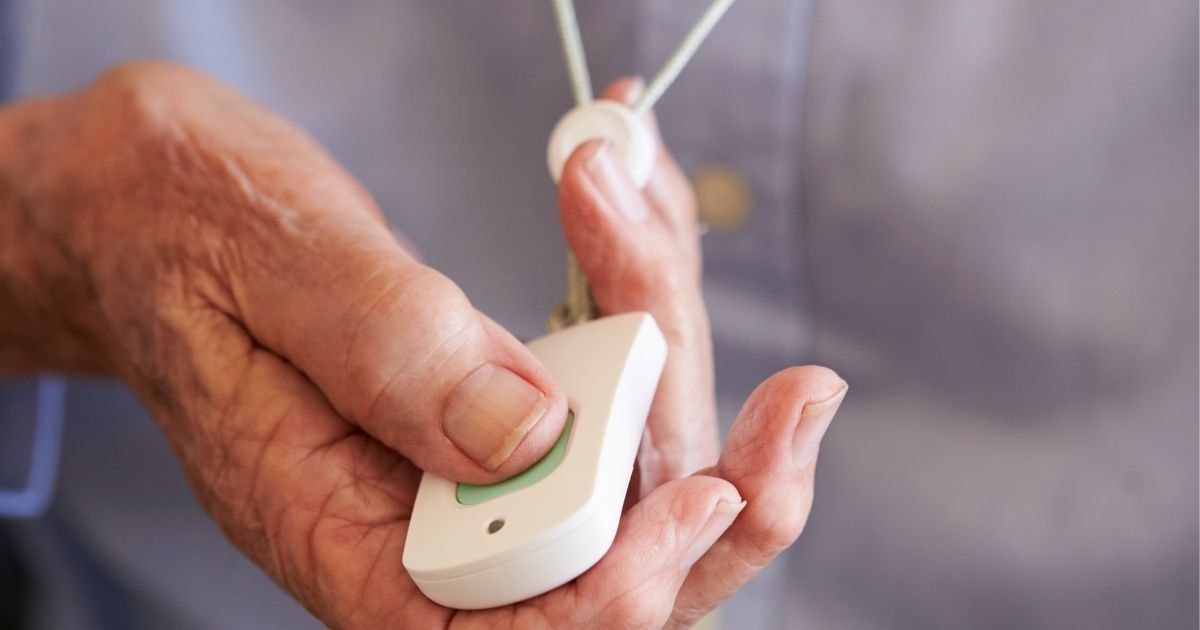Millions of elderly Americans are injured in home accidents every year, with most of those occurring in the kitchen, bathroom and living room. Accident-related cuts, burns and fractures send countless seniors to emergency departments every year.
Sadly, some never fully recover from their injuries while others lose their independence permanently as a result. Fortunately, keeping that special senior in your life safer is possible by using these home modification tips.
Why Are Seniors Accident-Prone?
Most seniors undergo gradual physical and mental changes which then make performing activities of daily living (ADLs) like cooking, bathing, and toileting more dangerous. For reasons like pride and denial many aging adults ignore those limitations, which then puts them at greater risk for experiencing an accident.
In general, older adults are more accident-prone for reasons like:
- Diminished muscle strength
- Balance, coordination, and flexibility issues
- Slower reaction times
- Cognitive impairment caused by dementia or Alzheimer’s
- Vision changes
- Bone density loss
- Confusion
Creating a More “Senior-Friendly” Home
As a concerned friend or family member, here are some home modification tips to create a more “senior-friendly” home environment for your loved one:
Eliminate trip-and-fall hazards
One-in-four seniors experience a serious fall every year, resulting in broken hips, bruises, and fractures. Fall-proof your loved one’s home by eliminating trip hazards like throw rugs, electrical cords, and clutter. Be sure that all stairways are well-lit and that they have handrails along both sides.
Beef up the lighting
Due to vision changes many seniors have trouble seeing objects clearly like they once did- especially at night. If needed, beef up the lighting in their hallway, bedroom and above the stairs. As an added precaution use reflective tape to mark uneven floors or steps.
Modify the bathroom
With its slippery tile floors, confined spaces and sharp corners, the bathroom is a dangerous place for seniors. Reduce the likelihood for a bathroom mishap by placing nonskid tape inside the tub and a nonslip bathmat outside the tub. Install grab bars on the wall next to the toilet and in the shower/tub area. If mobility is an issue find your loved one a shower seat and handheld shower wand.
Smoke alarms
Home fires started by cooking accidents or faulty wiring injure scores of elderly Americans each year. Install smoke alarms strategically around their residence and replace the batteries every 6 months. Also be sure that there are several fire extinguishers in the home and that your loved one knows how to operate them.
Proper bed height
Getting in and out of bed can be hazardous for those with limited mobility. Find your loved one a bed that is the perfect height for them to safely get in and out of. If they tend to fall out of bed, position it as low to the floor as possible. If your senior uses a wheelchair, try to match the height of the bed with the height of the wheelchair’s seat.
Kitchen modifications
Discourage your loved one from climbing on stepstools by arranging all food stuffs and cookware within arm’s length. Mark key controls on their stove with bright nail polish and install an anti-scalding, water shutoff device on the faucet. Also move kitchen chairs and other trip hazards safely out of the way. Finding them a pair of shoes with nonslip soles will help keep them from slipping on spill-dampened floors.
Medical alert system
It’s also a good idea to get your loved one a medical alert system, or “personal emergency response system” (PERS). Not only will it keep them safer while at home, doing so will also restore your peace of mind!
Keeping At-Home Seniors Safe is Our Priority
Protecting an aging loved one from home accidents is not easy when you’re busy or live far away. In addition to these home modification tips, you can put your mind at ease by finding them a “personal assistant” from Help at Home. While serving as another layer of security in the home, one of our thoroughly screened health professionals will be happy to keep your senior safe and comfortable so they can continue living right where they want to be.
With 20+ years of experience, our agency takes great measures to match your loved one with a qualified caregiver that is compatible with their unique personality and specific needs. Our in-home services include companion care, personal care, transitional care, medication assistance, respite care, dementia and Alzheimer’s care, and end-of-life care. To learn more about Help at Home now, or to contact us about a senior in Virginia, Maryland or the Washington, DC, metro area today, please visit us at: www.helpathomecare.com!


